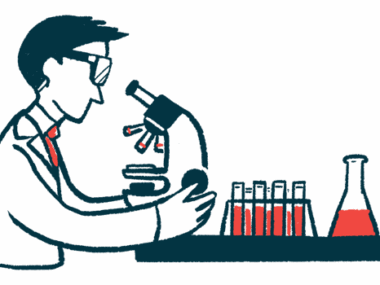Immunotherapy implant promising for treating pancreatic cancers
Device made of engineered cells that send immune-activating molecule at tumor
Written by |

A new approach in immunotherapy that can safely boost the body’s immune response has shown promise in hard-to-treat tumors like pancreatic cancers, a study finds.
Researchers from the Rice Biotech Launch Pad at Rice University developed a tiny implantable device made of engineered cells that locally release interleukin-12 (IL-12), a powerful immune-activating molecule, directly at the tumor site.
Referred to as an IL-12 “cytokine factory,” the device successfully activated the immune system to eliminate both primary and metastatic tumors, that is, cancers that have spread from their original site to other parts of the body, in animal models, while avoiding the toxic side effects that often occur when IL-12 is administered throughout the body.
“We designed the IL-12 cytokine factory to enhance immunotherapy approaches while minimizing toxicity, a critical need in the treatment of particularly aggressive cancers,” Omid Veiseh, professor of bioengineering, faculty director of the Rice Biotech Launch Pad and senior corresponding author of the publication, said in a Rice University news release. “IL-12 is particularly impactful compared to other cytokines, [and] generates a more robust anti-tumor response by recruiting a more durable, broader repertoire of tumor-targeting T-cells.”
The study, “IL-12-producing cytokine factories induce precursor exhausted T cells and elimination of primary and metastatic tumors,” was published in the Journal of ImmunoTherapy in Cancer. The work was supported through an Avenge Bio Sponsored Research Award to Rice, the Cancer Prevention Research Institute of Texas, the National Institutes of Health, and ARPA-H.
Tackling treatment resistance
Pancreatic cancer, which arises from the uncontrolled growth of cells in the pancreas, an organ involved in digestion and blood sugar regulation, remains one of the most aggressive and treatment-resistant tumors. This is largely due to late detection, the tumor’s immunosuppressive environment, and a poor response to conventional therapies such as chemotherapy and radiation.
Although immunotherapy has revolutionized cancer treatment, “the majority of patients with cancer fail to experience durable responses from these treatments, and many cancer types, such as pancreatic cancer, rarely exhibit any response to immunotherapies,” the researchers wrote.
This failure is often attributed to the inability of immune cells, particularly T-cells, which are central to identifying and attacking cancer, to reach, infiltrate, and remain functional within the tumor. Systemic administration of immunotherapies can also cause severe side effects, which means patients often can’t receive a sufficient dose to get the treatment’s full benefit.
To overcome these challenges, the researchers developed a delivery platform to trigger a strong, localized immune activation while minimizing systemic toxicity.
Human retinal cells (ARPE-19) were engineered to continuously produce immune-stimulating molecules, including IL-12, IL-2, or interferon-gamma, and were then encapsulated in tiny beads made of alginate, a gel-like material derived from seaweed. These cytokine factories protect the engineered cells from being destroyed by the immune system while allowing the release of immune-boosting signals at the tumor site. The technology is being evaluated in a Phase 1/2 clinical trial (NCT05538624) in ovarian cancer.
Treatment with ‘IL-12 cytokine factories’
Here, researchers surgically implanted these cytokine factories in the abdominal cavity of different cancer mouse models and tested them for their anti-tumor activity.
In a pancreatic cancer mouse model, where cancer cells were injected into the pancreas of mice and allowed to grow for one week, treatment with IL-2 and IL-12 cytokine factories significantly reduced the number of viable tumor cells within five days, “highlighting the ability of cytokine factories to rapidly activate the immune system and induce anti-tumor effects,” the researchers wrote. Only the IL-12 factories induced a broader and more diverse immune response, however.
Specifically, IL-12 cytokine factories led to a robust T-cell recruitment and activation, including generating precursor exhausted T-cells, a stem-like T-cell population critical for long-term anti-tumor immunity and improved responses to immunotherapy. The treatment also enhanced the infiltration of other pro-inflammatory immune cells and the increased diversity of T-cell receptors within tumors, crucial for a broader recognition of cancer cells and minimize the risk of immune escape.
In the same models, long-term follow-up showed the pancreas of animals treated with IL-12 cytokine factories appeared similar to that of healthy mice, with treatment significantly extending their survival. Also, the animals treated with IL-12 cytokine factories showed no evidence of tumors at the study’s end, “suggesting that the therapy was highly effective at inducing the eradication of the tumor cells.”
During the study, the animals didn’t experience weight loss or any signs of toxicity, suggesting treatment “was well tolerated long term.”
IL-12 cytokine factories not only eliminated primary pancreatic tumors, but also triggered a systemic immune response capable of controlling cancer spread across multiple cancer models. Notably, when combined with an anti-PD-1 checkpoint inhibitor, a therapy that boosts the ability of immune cells to destroy cancer cells, IL-12 cytokine factories prevented melanoma lung metastases in all treated animals and eliminated the primary tumor more effectively than either therapy alone.
Safety studies in nonhuman primates confirmed the IL-12 cytokine factory platform was well tolerated over two months, with no detectable signs of toxicity. Blood levels of IL-12 remained low while maintaining high concentrations locally at the tumor site. Organ function remained normal throughout the study.
“Harnessing the cellular immune system to target solid tumors is a common, but often fraught approach to fighting cancer as the associated challenge of efficacious treatment without toxicity remains elusive,” said Nathan Reticker-Flynn, assistant professor of otolaryngology at Stanford University. “Our study demonstrates not only the efficacy of this technology in preclinical models, but also its safety profile, which is a critical aspect as we move toward clinical trials.”




